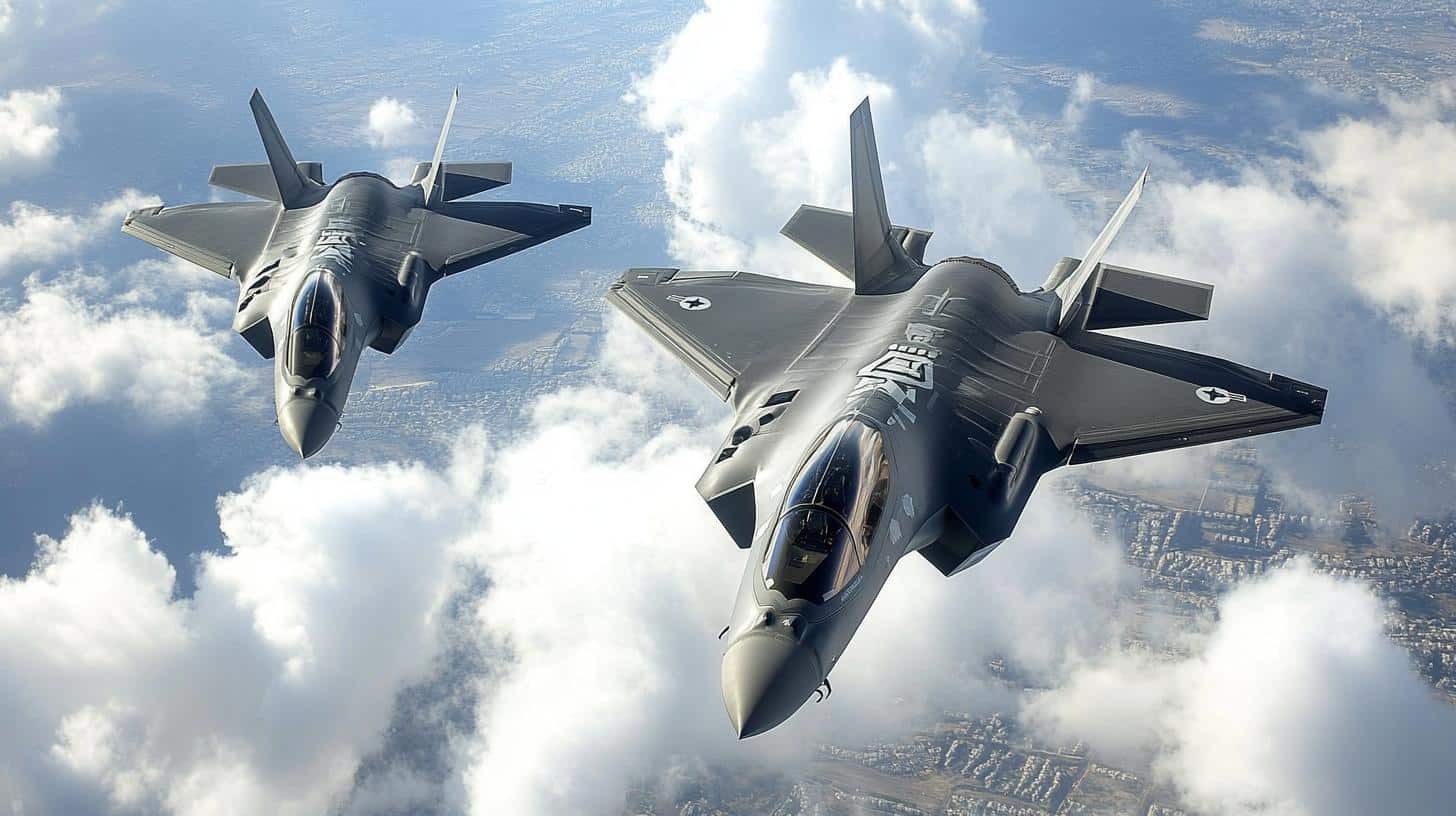In a landmark agreement, the Israeli Ministry of Defense has secured a contract worth $5.2 billion with Boeing to acquire cutting-edge F-15 fighter jets. This investment highlights Israel’s strategic focus on advancing its air force capabilities in collaboration with the United States.
The acquisition is part of a substantial $18.82 billion assistance package from the US, specifically designed to enhance Israel’s aerial defense infrastructure. This notable deal encompasses not only 50 state-of-the-art F-15IA aircraft but also includes essential upgrade kits for the nation’s existing fleet of jets.
The introduction of the F-15IAs is set to significantly boost Israel’s operational synergy with American military systems. This enhancement is crucial for bolstering the country’s defense readiness against escalating threats in the Middle East region.
Moreover, these advancements are expected to fortify Israel’s deterrent capabilities, allowing for swift and effective responses to potential security challenges. This deal signifies a major step in maintaining and reinforcing Israel’s defensive strategies.
The finalization of this agreement followed months of negotiation, culminating with discussions led by Israel’s Ministry of Defense in the United States. In October 2024, Eyal Zamir, the director general of the Ministry, played a pivotal role in concluding this vital contract during his visit to the U.S.
This strategic partnership not only signifies a deepening of US-Israel military cooperation but also underscores the importance of advanced aerial capabilities in modern warfare.
The Ripple Effect of Israel’s F-15 Deal: Unforeseen Impacts and Global Repercussions
In the realm of global defense and military advancements, Israel’s new contract with Boeing for F-15 fighter jets is making waves beyond its initial announcements. While much has been discussed about the deal’s significance on a state level, it’s important to explore the broader implications of this landmark agreement on individuals, communities, and other nations.
Broader Economic Implications
Beyond enhancing Israel’s defense capabilities, this $5.2 billion deal is expected to create significant economic opportunities. The contract will likely result in job creation not just in Israel but also in the United States, particularly in regions where Boeing’s facilities are located. American workers in manufacturing, engineering, and defense electronics industry could see benefits from increased production demands.
Technological Advancements and Innovation
The introduction of F-15IA aircraft will pave the way for technological advancements. This could spur further innovation by integrating cutting-edge technologies into defense systems, which might later trickle down into civilian applications. Historically, military innovation has contributed to developments in sectors such as telecommunications, computing, and navigation.
Geopolitical Ramifications
The deal strengthens the US-Israel alliance, yet it also presents strategic concerns for neighboring countries in the Middle East. Questions arise about the balance of power in a region already fraught with tension. How will this deal influence other nations’ military strategies? Could it accelerate an arms race, or will it prompt diplomatic dialogues to prevent potential conflicts?
Public Perception and Controversies
The public reception of such military deals often involves mixed opinions. Some communities might welcome the security that advanced military capabilities offer, while others could express concerns over escalating military expenditures amid socio-economic challenges like healthcare and education funding.
Advantages and Disadvantages
Advantages:
– Enhanced Security: Strengthening national defense capabilities provides a significant deterrent against potential threats.
– Economic Benefits: The deal stimulates economic growth through job creation and boosts the defense industry.
Disadvantages:
– Increased Tensions: Other countries in the region may perceive this as a threat, potentially leading to increased military build-ups.
– Cost Concerns: High spending on military advancements could divert resources from essential public services.
Unanswered Questions
As we consider the implications of such a deal, critical questions remain: How will this agreement affect long-term peace processes in the Middle East? What steps can be taken to ensure that military advancements do not fuel further regional instability?
For those interested in exploring more about international defense partnerships and current geopolitical strategies, comprehensive resources can be found on link name and link name.
In conclusion, while Israel’s acquisition of F-15 fighter jets marks a strategic enhancement of its military, its multifaceted impact will continue to unfold in areas of technology, economy, and international relations. As stakeholders navigate the complexities of defense advancements, these developments serve as a reminder of the intricate balance between military readiness and global diplomacy.







